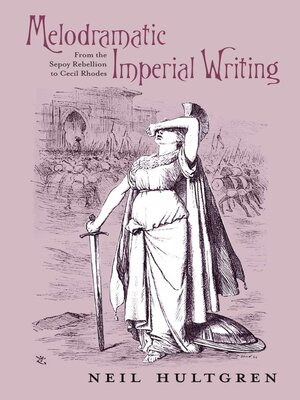Melodramatic Imperial Writing
ebook ∣ From the Sepoy Rebellion to Cecil Rhodes · Series in Victorian Studies
By Neil Hultgren

Sign up to save your library
With an OverDrive account, you can save your favorite libraries for at-a-glance information about availability. Find out more about OverDrive accounts.
Find this title in Libby, the library reading app by OverDrive.



Search for a digital library with this title
Title found at these libraries:
| Library Name | Distance |
|---|---|
| Loading... |
Melodrama is often seen as a blunt aesthetic tool tainted by its reliance on improbable situations, moral binaries, and overwhelming emotion, features that made it a likely ingredient of British imperial propaganda during the late nineteenth century. Yet, through its impact on many late-Victorian genres outside of the theater, melodrama developed a complicated relationship with British imperial discourse.
Melodramatic Imperial Writing positions melodrama as a vital aspect of works that underscored the contradictions and injustices of British imperialism. Beyond proving useful for authors constructing imperialist fantasies or supporting unjust policies, the melodramatic mode enabled writers to upset narratives of British imperial destiny and racial superiority.
Neil Hultgren explores a range of texts, from Dickens's writing about the 1857 Sepoy Rebellion to W. E. Henley's imperialist poetry and Olive Schreiner's experimental fiction, in order to trace a new and complex history of British imperialism and the melodramatic mode in late-Victorian writing.







